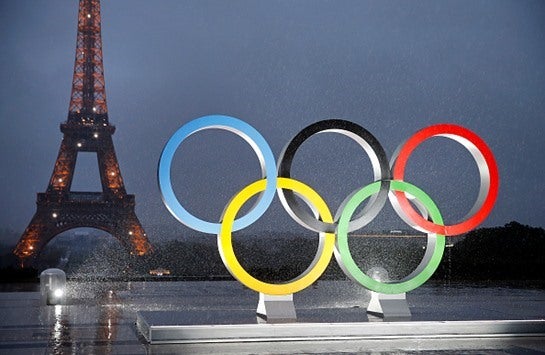
By Euan Cunningham
The organisers of the Paris 2024 Olympic Games are on target to have two-thirds of domestic sponsorship revenue secured by the end of this year despite the economic challenges posed by the coronavirus pandemic.
At a press conference yesterday, following the latest virtual meeting with the International Olympic Committee's coordination commission, Paris 2024 president Tony Estanguet said that over 50 per cent of budgeted sponsorship revenue was already confirmed, and that more brands will come on board in the coming months.
The planned sponsorship budget for the 2024 Paris Olympics was set during the initial budgeting process at €1.1 billion ($1.27 billion).
The organising committee has landed two new domestic sponsors in recent weeks, with information technology company Atos and US technology giant Cisco signing up as cybersecurity partners.
Both of those are second-tier sponsors, with the top-tier partners to date being Orange, the telecoms giant, EDF, the energy company, and Groupe BPCE, which comprises Banque Populaire, Caisse d'Epargne, Banque Palatine and Natixis.
Estanguet said on Tuesday: “So far, we have passed over 50 per cent of budgeted sponsorship revenue, and we are still on track to secure two-thirds of revenue by the end of this year.
“This is exactly what we wanted to achieve before the [Covid-19] hit, and even during the pandemic, we have kept the same rhythm with sponsors despite the challenges.”
Estanguet added that the organising committee “is currently having good conversations with a number of brands… It’s not easy at the moment for them to officially join up with us, but definitely I can say companies are still very interested in what we have to offer.”
The additions of Atos and Cisco, he said, “strengthen our cybersecurity portfolio, which is a very important area for us".
He added that, in terms of the sponsorship portfolio, the organising committee "is very happy with at the moment… we haven’t been impacted by the crisis in our preparations timeline".
Meanwhile, Pierre-Olivier Beckers-Vieujant, chair of the IOC's coordination commission, said the overall preparations for Paris 2024 are “on track" despite the complications caused by Covid-19.
The Belgian IOC member said: "At this point, in what is a complex and very difficult environment, for Paris 2024 to work and organise around, the games are on track.
“It has not only confirmed its commitments, but today it has strengthened them in a number of areas and in various aspects of the projects.”
He added that the host city is still “committing to discipline around its budget, and continuing to look for where it can be more efficient, so it will be a responsible games".
As of December 2020, the budget for the 2024 Paris Olympic and Paralympic Games stood at €3.9 billion ($4.7 billion), with a revised hosting concept which the organising committee approved late last year – focusing on fewer venues – set to deliver cost savings of €300 million.
Meanwhile, Estanguet said the Paris organising committee had been interacting and engaging closely with its counterparts in Tokyo, where the delayed 2020 games will take place in July and August.
He said: “During this very challenging situation, all the opportunities for us to observe Japan’s preparations for their games have been very beneficial for us, in terms of watching their crisis management.
“It was very useful for us to observe how they were reacting to the situation, to observe the different measures they have been taking over the last few months. Since early last year we have been benefitting from that collaboration.”
Christophe Dubi, the IOC's executive director of the Olympic Games, added: "We had a very good base from which to approach the Japanese partners when the crisis first hit, which made a tremendous difference.
“The best approach is constant engagement and communication with the stakeholders there.”



